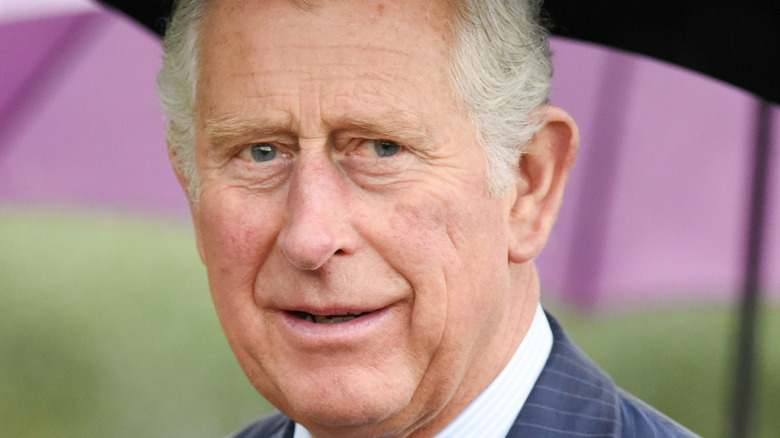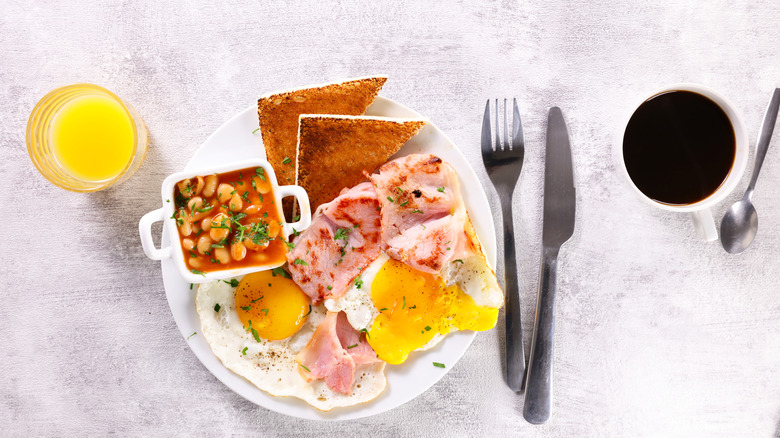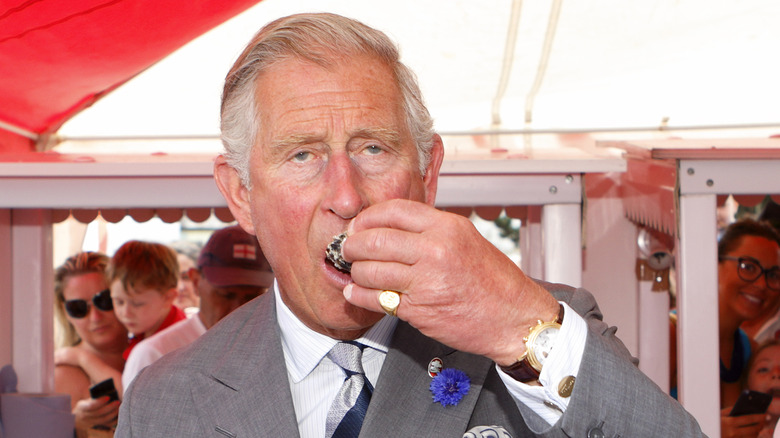What's In King Charles III's 'Breakfast Box'?
CORRECTION 9/26/22: A previous version of this article stated King Charles only eats fish and meat twice per week. He omits fish and meat from his diet twice per week.
It's always fascinating to learn about global cuisines and the eating habits of people across the world. Cultures compare and contrast favorite foods and mealtime traditions, considering how their personal preferences vary from the norms in faraway places.
According to The English Breakfast Society, a full English breakfast is a traditional meal dating back centuries. Once reserved for distinguished members of high society, the full English breakfast of the 14th and 15th centuries was a massive spread laid out for the English gentry before they went out to hunt. By the 20th century, a full English breakfast had become a tradition throughout British society and is still served today. The modern take on the traditional breakfast includes sausages, back bacon, eggs, baked beans, and toast that are preferably locally or regionally sourced.
Excepting the team of chefs on call to suit their cravings, the British royal family is no different from us commoners in their propensity for mealtime routines. Queen Elizabeth was known to prefer a much simpler breakfast that often consisted of cereal, yogurt, or toast with the occasional kipper or scrambled egg. When you are royalty, you can undoubtedly break from the norms in the privacy of your dining room. Her son, now King Charles, follows suit and has a particular breakfast spread that doesn't look anything like a traditional one. Here's a peek at how King Charles III prefers to start his day.
The King's breakfast contains His Majesty's simple breakfast favorites
When picturing a king sitting down to a royal meal, you can envision a long table covered in luxurious food and sweet beverages. The Mirror reveals that King Charles' breakfast spread is much simpler in reality (but still quite specific — he is a royal, after all).
His Majesty is known for keeping a busy schedule that often doesn't include time for lunch, making breakfast an essential meal for sustaining him throughout the day. As a big supporter of organic farming, the King insists on stocking the royal pantry with his choice of produce. According to the outlet, he prefers a mainly plant-based diet with a healthy breakfast full of vitamin- and fiber-filled foods — a far departure from a full English breakfast. With sustainability and ethics in mind, he has even banned certain animal products from royal menus.
On YouTube, former Royal Chef Graham Newbould disclosed the contents of His Majesty's "breakfast box" to contain specific items that travel with the King wherever he goes. King Charles is said to be "quite fussy" about having six types of honey, special mueslis, and an assortment of dried fruit in his breakfast box. He also enjoys homemade bread, tea, fresh fruit, and juices in the morning, but his breakfast box is the standard he has with him wherever he travels. It's different than traditional eggs, blood sausage, and baked beans, but whatever the King wants, he gets.
King Charles prefers a healthy and sustainable diet
King Charles III has long been known for his environmental advocacy and Express has described how he promotes reducing out carbon footprint by adopting a more sustainable diet. Meat has been partially off His Majesty's menu for years; Per the BBC, he eats a vegetarian diet twice weekly and skips dairy one day per week. As a staunch environmentalist, the King understands the importance and global impact of what we eat and says that even slight dietary changes can reduce the burden that our food systems impose on the planet.
The Mirror notes that as a big supporter of organic farming, the King insists on stocking the royal pantry with his choice of produce. According to the outlet, he prefers a mainly plant-based diet with a healthy breakfast full of vitamin-rich and fiber-filled foods — a far departure from a full English breakfast.
With sustainability and ethics in mind, he has even banned certain animal products from royal menus.


